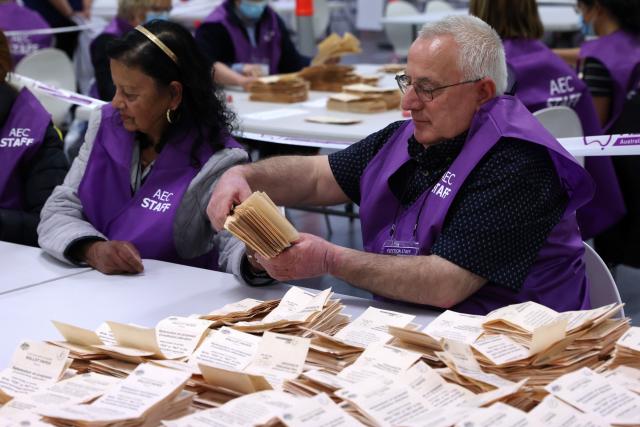
By Tanya Faulkner
The votes are in and a decision has been made on the first Australian referendum since 1999.
Despite The Voice referendum returning an overall ‘No’ vote, with 61 per cent of Australians voting No to the altering of the constitution to create a voice to parliament to represent Indigenous communities, several regions had other results at the end of polling day.
Across the Casey electorate, the No’s only just held the majority, with only 58 per cent of locals making up the majority, and a close 42 per cent voting yes.
However, several polls said otherwise, with an overwhelming majority of Knox polls proving a majority in acceptance of The Voice.
From the polling results in the Knox municipality, Boronia and Rowville were the only locations turning a ‘No’ majority.
Boronia had the biggest turnout of voters in the municipality, with the results favouring the no’s 1997 to the yes’s 1846 votes.
In the Yarra Ranges, Tecoma had the greatest count in favour of The Voice, with 1,154 votes for The Voice versus only 639 against.
Most other polls returned similar results, seeing a vast majority of Hills residents actually voting in favour of the change.
Further in the Dandenong Ranges, however, the overall result was vastly different to that of the foothills, with the No majority much more prominent across the polls.
Healesville voters flocked to the polls over referendum weekend, with the No’s holding a strong majority over the Yes vote – 2,854 to 2,256 respectively.
The polls in Menzies Creek, Mount Dandenong, and Warburton were the only polls to show a Yes majority, the rest of Upper Yarra voting against the change.
Across the Ranges, Lilydale provided the greatest polling numbers, with 4,350 yes votes trampled by the 9,750 who voted against, showing almost a 50 per cent divide.
For one local woman, the results are ‘devastating’.
Hills Walking Together founder Shakti McLaren said she feels “completely disregarded as an educated person who understands Australia and First Nations issues”.
“I spent four days after the referendum with some elders in GunaiKurnai country in East Gippsland.
“One of the leaders, Rob, said they ‘didn’t expect a yes, we never get a yes, we always get a no’.
“I’m not sure if every First Nations person feels that way, but they never do expect a yes.
“As a white privileged woman, I expect countrymen to do their research and find out what is true – 60 per cent did not bother to find out what is true,” she said.
While Ms McLaren understood that some people would have been very conflicted when casting their vote, she felt the matter was very simple.
“It was simply First Nations people to non-First Nations people asking for a sentence to recognise their voice in the constitution,” she said.
Monbulk MP Daniela de Martino said her love and thoughts go out to every Aboriginal and Torres Strait Islander who sought Constitutional recognition and a voice to parliament.
“Aboriginal friends and colleagues of mine have been deeply distressed and devastated by the result.
“Although the results from the AEC are yet to be finalised, we can see a strong support for the referendum across the electorate of Monbulk.
“As the local member, it is heartening to see that across the hills and foothills of the Dandenong Ranges, collectively we voted ‘Yes’.
“As a state, we’ll keep working towards a stronger, fairer future for Aboriginal Victorians – led by, shaped by and driven by Aboriginal Victorians,” she said.
Federal Member for Casey Aaron Violi said while there are differences of opinion, the referendum result shouldn’t divide us as a community.
“There’s no doubt many people are struggling at the moment and will be disappointed by the result.
“I will continue to engage with and work constructively with the Indigenous community and organisations, at a local and national level.
“I will continue to do my utmost to lead with courage and do what is right to implement the practical solutions required to improve outcomes and close the gap.
“I am a proud brother and nephew to Indigenous Australians and I, like all Australians, want to see Indigenous disadvantage addressed and reduced with practical solutions developed with local Indigenous communities at their centre,” he said.
The biggest Yes vote in the state, and also the whole of Australia, was counted at Carlton North Primary School, with the local seat held by Greens leader Adam Bandt.
Out of the 1860 people who cast their vote there, only 129 – or seven per cent – voted no, with a whopping 93 per cent voting Yes in the area.
Overall, Victoria was the most divided state overall when it came to the final decision, showing only a 10 per cent difference between the no and the yes voters, 55 per cent to 45 per cent respectively.
The greatest split came out of Queensland, with 69 per cent of residents voting against The Voice, and only 39 per cent in favour.
Every other state had at least a 60 per cent majority in favour of the No vote.
The Federal government, who have returned for a sitting week in Canberra following The Voice, will now have to face questions on how it plans to approach Indigenous affairs without the overarching policy of the Voice being implemented.






